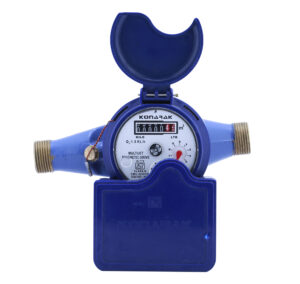In an era where water scarcity is becoming increasingly critical, smart water meters are emerging as a cornerstone of modern urban water management. These innovative devices are revolutionizing how we monitor, conserve, and distribute water resources, offering unprecedented insights into consumption patterns and network efficiency.
Smart meters are proving their worth through tangible results. In Bangalore, a pilot project implementing these devices across 2,000 households resulted in a 25% reduction in water wastage within six months. The real-time data provided by these meters enabled the utility company to identify and address leaks promptly, while consumers became more conscious of their usage patterns.

The technology’s impact extends beyond mere consumption monitoring. Advanced analytics integrated with smart metering systems can predict potential pipeline failures, optimize pressure management, and ensure equitable distribution. For instance, a mid-sized Indian city reduced its non-revenue water losses from 35% to 15% by implementing smart metering infrastructure, translating to annual savings of approximately ₹12 crore.
From a utility manager’s perspective, smart meters offer unprecedented operational visibility. The system generates detailed reports on consumption trends, peak usage times, and anomalies, enabling data-driven decision-making. This information proves invaluable for infrastructure planning and resource allocation.
For consumers, the democratization of water usage data through smartphone apps and web portals has been transformative. Users can monitor their daily consumption, receive leak alerts, and compare their usage with neighborhood averages. This transparency has fostered a culture of conservation, with some communities reporting voluntary reduction in water usage by up to 20%.
Looking ahead, the integration of artificial intelligence and machine learning with smart metering systems presents exciting possibilities. Predictive analytics could help forecast demand patterns, while automated systems could adjust water distribution in real-time based on consumption needs.
However, challenges remain. The initial infrastructure cost, cybersecurity concerns, and the need for technical expertise in maintaining these systems need careful consideration. Despite these challenges, the return on investment is compelling – utilities implementing smart meters typically recover their costs within 3-4 years through improved efficiency and reduced losses.
As we move toward smarter cities, intelligent water management systems will play a crucial role in ensuring sustainable urban development. The technology is not just about monitoring consumption; it’s about creating a more sustainable and equitable water distribution system for future generations.
The success of smart water metering initiatives worldwide demonstrates that technology can indeed be a powerful ally in our quest for water conservation. As we face increasing pressure on our water resources, these solutions offer a path toward more sustainable and efficient water management practices.



